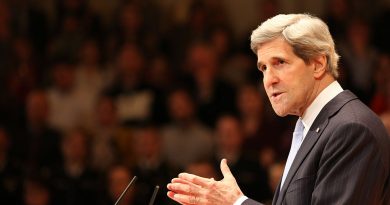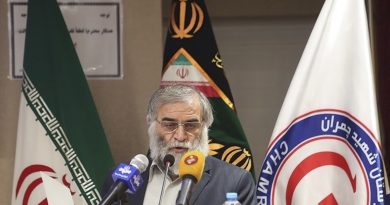Obama’s military legacy (I): changes in budget, continuity in interventionism
A hopeful begin.
On 9 October 2009 the Norwegian Nobel Committee awarded to Barack Obama the Nobel Peace Prize for his “extraordinary efforts to strengthen international diplomacy and cooperation between peoples”. A debate about this award raised soon afterwards, as Obama began his mandate only 8 months before: several commentators thought that this award has been at least premature and, years later, the Secretary of Nobel Committee Geir Lundestad regretted the choice of having awarded the Nobel Peace Prize to the President of the USA.
Nevertheless, the Obama’s administration inaugurated a period of change regarding the US armed forces and the American military involvement in several theatres throughout the world; the Nobel Peace Prize award has been seen by Obama as a ‘call to action’ more than a prize for something that he had not yet done. In this sense, the changes implemented by the Obama administration can be seen as his political-military legacy and will be analysed from two points of view, being the first related to the changes of the American armed forces seen as an American institution and structure, and the second – analysed in another post – related to the changes of the American interventionism in the world.
Reshaping American armed forces: a new military perspective or budgetary need?
During the last American presidential campaign, several voices from the Republican Party denounced that the American armed forces have been depleted and were still shrinking. It is true indeed that during the first Obama mandate the budgetary resources for the armed forces suffered a constant reduction, continuously since 2011 until today. This budgetary reduction had possibly two reasons: from the one hand, it was a consequence of the demobilization of American troops in Afghanistan and Iraq; on the other hand, it was determined by sequestration, i.e. an annual automatic budgetary reduction.
It is difficult to determine if these spending cuts had been the result of a planned budgetary policy, a change in perspective regarding American foreign policy during the Obama administration or a necessity during a period of deep economic crisis. Possibly, a mixture of these three reasons is the correct answer, because not only the cuts were a consequence of the strain on American federal budget, but also because the decision of demobilizing most of the American troops in the two main theatres of operations – Iraq and Afghanistan – was a political choice with political – and military – consequences. Nonetheless, the fact that Obama announced a leaner military approach already in 2012 clarify that spending cuts in military were a deliberate political decision. Being so, American military budget for Fiscal Year 2017 is 610 billion dollars, being 557 billion for base defence budget and the rest for funding American operation in the world, a feature that is the lowest since the end of the Second World War.
Curtailing military budget: reduction in military personnel and their benefits.
Furthermore, spending cuts had an obvious consequence on the total number of American troops and their readiness in case of conflict. In 2013 a drawdown plan to reduce military and civil personnel of the US armed forces has been implemented, for which the military active troops of the Army would have been reduced to 450,000 units until 2018; all the military Corps of the American armed forces would have to reduce their personnel features. In comparative terms, these features shows that American Army will be able to deploy less active soldiers than every year since 1940, when active troops in the US totalled 269,023 soldiers. Nonetheless, taking into consideration the grand total of the personnel employed for defence in the US, the decline of the features has been constant in two different phases, being the first the end of the Vietnam War, and the second the collapse of Soviet Union. In this sense, it is no surprise that the Heritage Foundation, a conservative think-tank, has judged the US armed forces unable to respond to two major regional crises at the same time and win; the think-tank also stated that the American Army in 2016 was weak. Beside the reduction in terms of personnel, the US funds for military have shrunk also in terms of wage, subsidies and stipends for soldiers in active duty and their families.
Nuclear weapons and anti-terrorism: a change in political-military perspective.
In this context two more elements must be taken into consideration. The first is the state of nuclear weapons in the US and the Obama perspective of a “nuke-free” world. As Obama stated in his speech during the Nobel Peace Prize award ceremony, his views on nuclear weapons was a strong reduction following the principles of the non-proliferation treaties. This perspective has been considered dangerous by the Heritage Foundation, as it would undermine US strategic deterrence against nuclear competitors that could be able to deploy newer and better nuclear weapons, while the US were unable to modernize their nuclear warheads and the necessary structures to use them.
The second element is the raise in funds destined to the Joint Special Operations Command (JSOC), a special group within the United States Special Operations Command devoted to study and perform special operations against terrorists throughout the world: for instance, JSOC assisted the Navy Seal in the operation that found and killed Osama bin Laden. JSOC received more funds – even if the organization budget’s features are kept secret – and gained favour within the American military framework, for it is considered as the “codification” of best practices in targeting terrorists outside of conventional conflict zones. On the one hand, this agency could be seen as the continuation of American – and Obama’s – commitment against international terrorism, even in a context of reduction of military funds as it has been summarized before; on the other hand, JSOC personnel has been labelled “death squad” and doubts rose regarding the legality of this organization’s action.
The state of the American armed forces at the end of Obama administration.
Finally, which is the Obama’s military legacy from an internal point of view? Obama is finishing his mandate as President leaving a weaker Army – possibly, the weakest since the Second World War. From the one hand, Obama’s budgetary policy – influenced by the economic crisis – opted for sequestration in order to reduce defence budget; on the other hand, a precise political decision determined the withdrawal of American troops from Iraq and Afghanistan, probably once again in order to reduce the costs – material and human – of the American commitment in those two countries. The reduced funds for the nuclear warheads could be justified with political commitment for a world with less nuclear weapons – and, once again, to reduce the defence budget – and the improvement of JSOC funds and possibly personnel can be seen as a choice for maintaining a strong commitment in counter-terrorism without investing too many resources in conventional operations.
In general terms, Obama’s attention to the military has been considered weak, partly because of the circumstances – i.e., the economic crisis – and partly because of deliberate political choices. Still, American armed forces are unrivalled and are second only to the Chinese People’s Army, but only from a quantitative point of view. Nonetheless, American military personnel – active, reservists or veterans – felt themselves at the margins of Obama’s political view. In this sense, Trump’s trumpets vowing to raise funds for the armed force as a whole, to modernize nuclear warheads and to bind more any eventual military intervention to American vital interests worked well to link the military – especially veterans – to the tycoon and granting to him their support during the Presidential election.
Graduation ceremonies for the Class 2012 at the U.S. Military Academy in West Point. Photo by U.S. Department of Defense Current Photos /Public Domain.
![]() This work is licensed under a Creative Commons Attribution-NonCommercial-ShareAlike 4.0 International License.
This work is licensed under a Creative Commons Attribution-NonCommercial-ShareAlike 4.0 International License.




